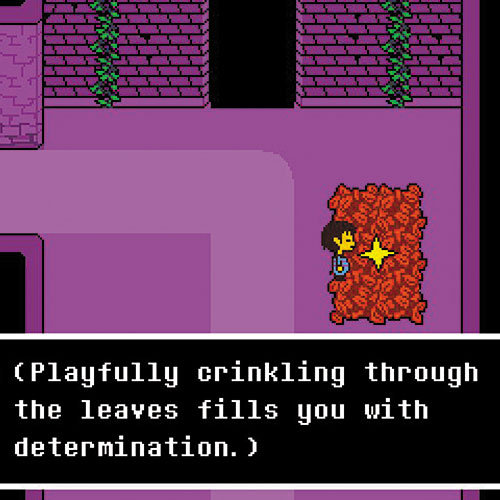PaigeFTW: ‘Undertale’ and Smart Gaming

So all my talk last week about the big, meaty RPGs I was going to play on my sparkling new gaming PC was a lie, because what I really ended up exploring last weekend was Undertale.
I know, I know, I’m late to the party on this new era of player-influenced, “smart” gaming that for the most part is only found on PC. (Next on my list, in that vein, is The Stanley Parable.)
But, for now, Undertale entices with its promise that every action you take will alter how your story ends. The opening dungeon really beats into you that killing or sparing your enemies makes a difference, and so thus far I’ve managed not to kill anything besides one training dummy (by mistake).
I like being able to negotiate with monsters, but the little bullet hell embedded into every monster encounter is really killing me … literally. I die a lot.
Still, I appreciate gaming worlds that try to play with convention, trying to give the player more power in what ultimately is a very controlled world. The illusion of agency is crucial to the success of any video game. Some games use photorealistic graphics or emotionally engaging stories to emulate the heft of reality. Others use decision-based mechanisms that force the game world to “react” to player actions, as Undertale does.
Ultimately, most games strive to have players forget they’re playing a game. That’s when bad controls or shoddy writing interrupt the trance and irritate the player.
Undertale cleverly pulls the curtain back at the same time that it draws it tight. It tells you, transparently, how the system works, but the revelation of the truth becomes the immersion. The game congratulates you for not skipping dialogue. It asks you questions and references your answers later. Every enemy killed or spared is tallied. You believe. The immersion consumes, and the player plays on.











